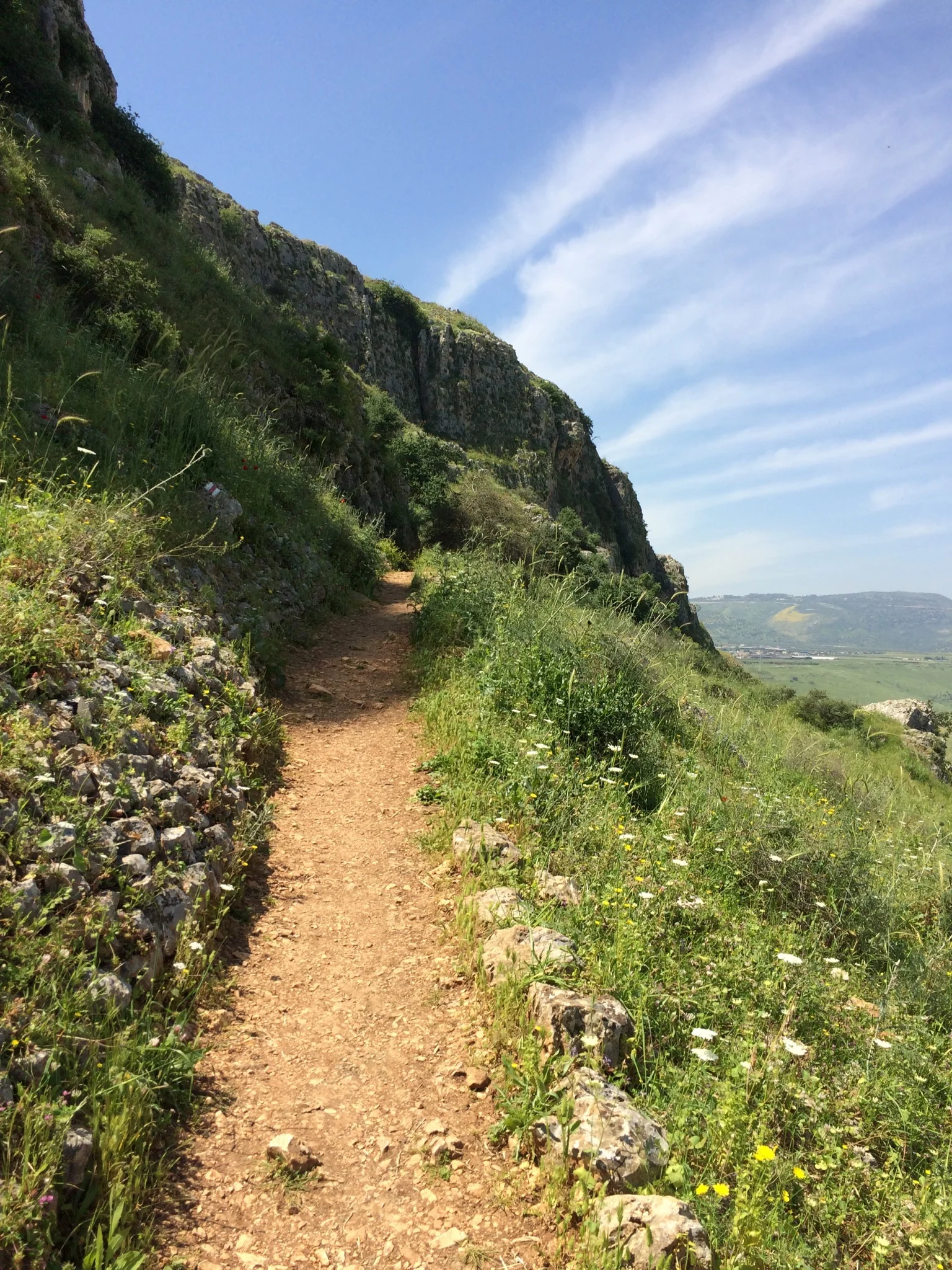Dear one,
We are now at a crossroads, that is, we are at the Galilee, an ancient crossroad between East and West. We are staying at a lovely kibbutz on the Golan Heights: fifty feet from our cabin porch, the escarpment drops a thousand feet to the Sea of Galilee below. For the last three evenings, as the sun set, I have delighted in looking across the lake, noting Magdala and Capernaum to the northwest and Bethsaida to the north, recalling that these place names reflect a rich variety of ethnic influences and peoples, very like those Jesus knew and among whom He daily walked.
Clearly this is an ancient land in which walking was the fundamental mode of transport. Without doubt, various conveyances existed, but two millennia ago those forms existed for the elite 1%, not for the vast, overwhelmingly impoverished majority. For Jesus’ contemporaries of 28AD, how one “walked” was of great importance: wisdom and heat dictated when, where, how quickly, with what articles, and with whom one traveled. An error in judgment in any one of these courted disaster. Thus in Jewish tradition, “halakha,” the Hebrew verb for “walking,” easily translated into how one lived: life is a journey and to finish well meant rightly stepping. In many regards, Jesus’s words of Matthew 5-7, the so-called “Sermon on the Mount,” are halakha: “You have heard it said, but I say …”
And yet, as I have thought of this land and its formidable difficulties—its rocks, deep-cleft wadis, and foreign footprints—and as I pondered afresh Jesus’ words and their stringency, I have sensed something else: this is not a great land in terms of size or beauty, and these people are not the only ones, who have been subject to the vicissitudes of warring cultures and climes; rather this land and its peoples very much reflect the Scriptures: the God of creation chooses “the least of these,” in order to demonstrate His greatness. In my mind, how else does one explain the existence of these people and their presence on the world stage, both past and present? Of course, it’s not that they have always if ever really walked righteously; instead, through them we have observed the long-suffering mercy and grace of God, most clearly seen in Jesus, who walked this land proclaiming, in word and deed: “I am the Way.”
Walking in Him,
Stan
Ps. My romantic sensibilities tell me that I could live happily in this land.
